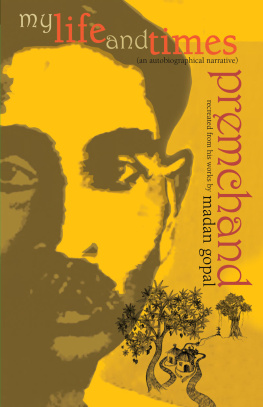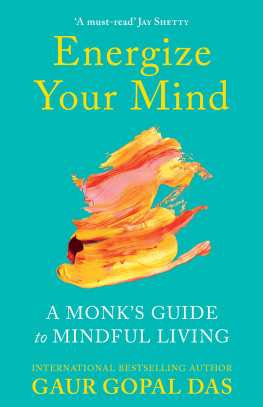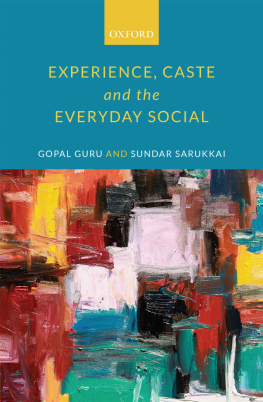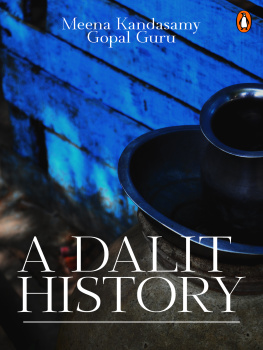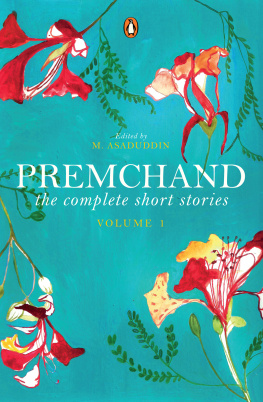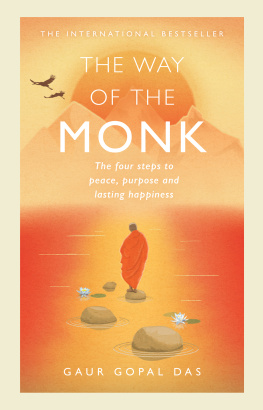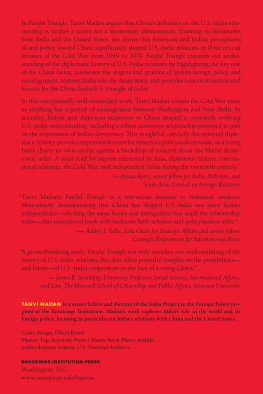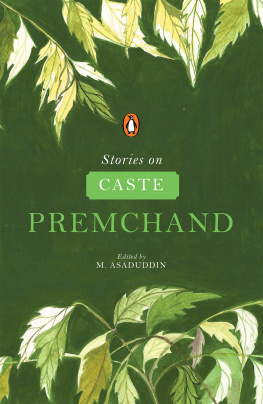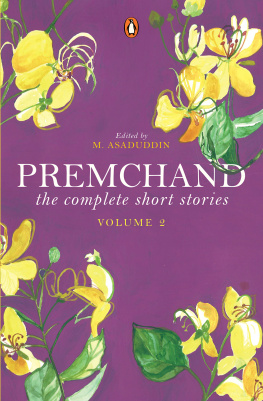Fiction, non-fiction, biographies, cookbooks, or coffee-table books Roli has something for everyone. With our all-time best-selling titles from Men who killed Gandhi to Men of Steel ; and from Dongri to Dubai to I too had a Dream , Rolis books have carved a niche in the world of publishing. For more information on our authors, best sellers, new and forthcoming titles, please visit www.rolibooks.com. You can also find us on Twitter, Facebook, and Instagram.
About the book
A unique autobiography of one of the greatest storytellers of our times, Munshi Premchand, recreated from his works by the man regarded as Premchands Boswell, Madan Gopal. Often compared to Gorky and Tolstoy, Premchand was not only a versatile writer of short stories, novels, dramas and essays, but also played an active role in the countrys freedom movement. His stories took birth from the lives of the common people, their vicissitudes and deprivations, as well as their small joys and victories. Premchand rebelled against narrow religious bigotry and, in fighting it through his writing he imbued a whole generation with the idea of a new social order of justice and equality.
The author, Madan Gopal, has based his narrative on a study of almost everything of consequence written by or on Premchand in Hindi and Urdu, including numerous unpublished letters written by and to Premchand, which provide an intimate knowledge of the man, the writer, and the thinker. Madan Gopals deep study of the writer whom he reveres has enabled him to tell the story of his life almost as the master storyteller would have told it himself. For all aficionados of Munshi Premchand, this is a book that must find a place on their shelves.

Madan Gopal was born in 1919 at Hansi, Hissar, and educated at CAV High School, Hissar, St Stephens College, Delhi, and Punjab University. He has carved a niche for himself in the world of literary biographies. Considered as Premchands Boswell, he wrote the first ever book on the life and work of Munshi Premchand in 1944, followed, 20 years later, by a full-length literary biography. His translation of Premchands short stories into English was published as The Shroud and Twenty-one Other Stories of Premchand. He has also collected and published Premchands letters in two volumes. According to The Times Literary Supplement, He has been largely responsible for introducing to Western readers the stories and novels of Premchand. Authentic, complete and accurate, his books are considered basic source material on Premchand.
A newspaperman for over 18 years, working with The Civil and Military Gazette, Lahore, The Indian Express and The Statesman, Madan Gopal was also a civil servant for 24 years, retiring in 1977, and is the author of over 25 books, including the first book in English on Bharatendu Harischandra, regarded as the father of modern Hindi, the first literary biography of Goswami Tulsi Das, and a novel, Naye Mode Par, which has been the subject of intense discussion in Hindi literary circles.
ROLI BOOKS
This digital edition published in 2015
First published in 2006 by
The Lotus Collection
An Imprint of Roli Books Pvt. Ltd
M-75, Greater Kailash- II Market
New Delhi 110 048
Phone: ++91 (011) 40682000
Email: info@rolibooks.com
Website: www.rolibooks.com
Copyright Madan Gopal, 2006
No part of this publication may be reproduced, transmitted, or stored in a retrieval system, in any form or by any means, whether electronic, mechanical, print reproduction, recording or otherwise, without the prior permission of Roli Books. Any unauthorized distribution of this e-book may be considered a direct infringement of copyright and those responsible may be liable in law accordingly.
eISBN: 978-93-5194-093-7
Cover: Kadambari Misra
All rights reserved.
This e-book is sold subject to the condition that it shall not, by way of trade or otherwise, be lent, resold, hired out, or otherwise circulated, without the publishers prior consent, in any form or cover other than that in which it is published.
AUTHORS NOTE
Except for a few passages which are in Premchands ownEnglishand those in italicswhich represent the transcreatorsendeavour to fill in the blanksthe entire contents of the pagesthat follow are an English rendering of Munshi Premchands ownHindi-Urdu writings.
ONE
I WAS BORN IN SAMWAT, THE HINDU CALENDAR, IN 1937 (1880 AD ). I was called Dhanpat Rai. My father was Munshi Ajaiblal, resident of Lamhi village, close to Mahndwa which is situated north of Kashi (Varanashi). I had a sister who was two years older than me. My father was a clerk in the postal department. When I was born he earned about Rs 20 per month. He would be transferred from place to place.
Ajaiblals elder brother, who had helped get him a job in his own department, died young. So did his nephew. Their families were supported by Ajaiblal, who also got his two brothers jobs in the same department. One of the brothers was convicted and jailed on the charge of embezzlement of funds. He disappeared, not to be seen again. His family was also looked after by Ajaiblal. Ours was a large joint family.
My impressions of my home as a child are just ordinary; neither very happy nor very depressing. I lost my mother when I was in my seventh year. Prior to that my recollections are very hazy; watching my languishing mother who was just as affec-tionate and, when occasion arose, as stern as all good mothers are.
Of my childhood memories, those of Qazaki are the most vivid. Many years have gone by, yet his figure dances before my inner eye. I was then with my father who was posted in Azamgarh tehsil.
A Passi, Qazaki was bold and full of life and vitality. Every evening he would bring in the mail bag, stay the night, and leave only the following morning. I would wait for him anxiously; at four oclock in the afternoon, I would go out on to the road and see Qazaki come running with a staff, bells fastened to it, ringing on his shoulder.
He was dark, muscular and hefty. His body seemed to have been cast in a mould with which even the most skilful of sculptors could not find fault. The tiny moustache on his well-formed face created a very pleasing impression. When he saw me, he would quicken his pace; his bells would ring louder and my heart would beat faster. I would run towards him and sit on his shouldersmy throne. Indeed, even paradise dwellers could not have experienced the joy I felt in the movement on Qazakis powerful shoulders; when he ran with me on his shoulders, it felt as if I were flying on the back of a winged horse. The world would grow small and contemptible.
Qazaki reached the post office, oozing perspiration. But he would not rest. Putting down the mail bag, he would take us children into the fields play with us, sing songs or tell us stories. He knew hundreds of blood-curdling stories of thefts and depredation; of battles, of violence, of ghosts and witches. I would listen and would be overcome with wonder. The thieves and robbers of his stories were heroes who would rob the rich to alleviate the sufferings of the poor. I would admire them.
One day Qazaki was late. The sun was setting, yet there was no sign of him. Like a lost soul I waited. My eyes became sore, squinting to catch a glimpse of Qazakis familiar figure. I strained my ears, but did not hear the melodious tinkling of his bells. As night fell my hopes faded. I asked everybody coming down the road Qazaki usually did whether they had seen him. Either they would not hear me, or they simply shook their heads. Then suddenly I heard the tinkling of bells. It was dark (and darkness meant ghosts to me; I would forego even the most delicious sweets kept on the shelf in my mothers room if it was dark). But when I heard the tinkling of bells, I ran to meet Qazaki. When I saw him, my anxiety gave way to fury. I beat him, then moved away from him.

